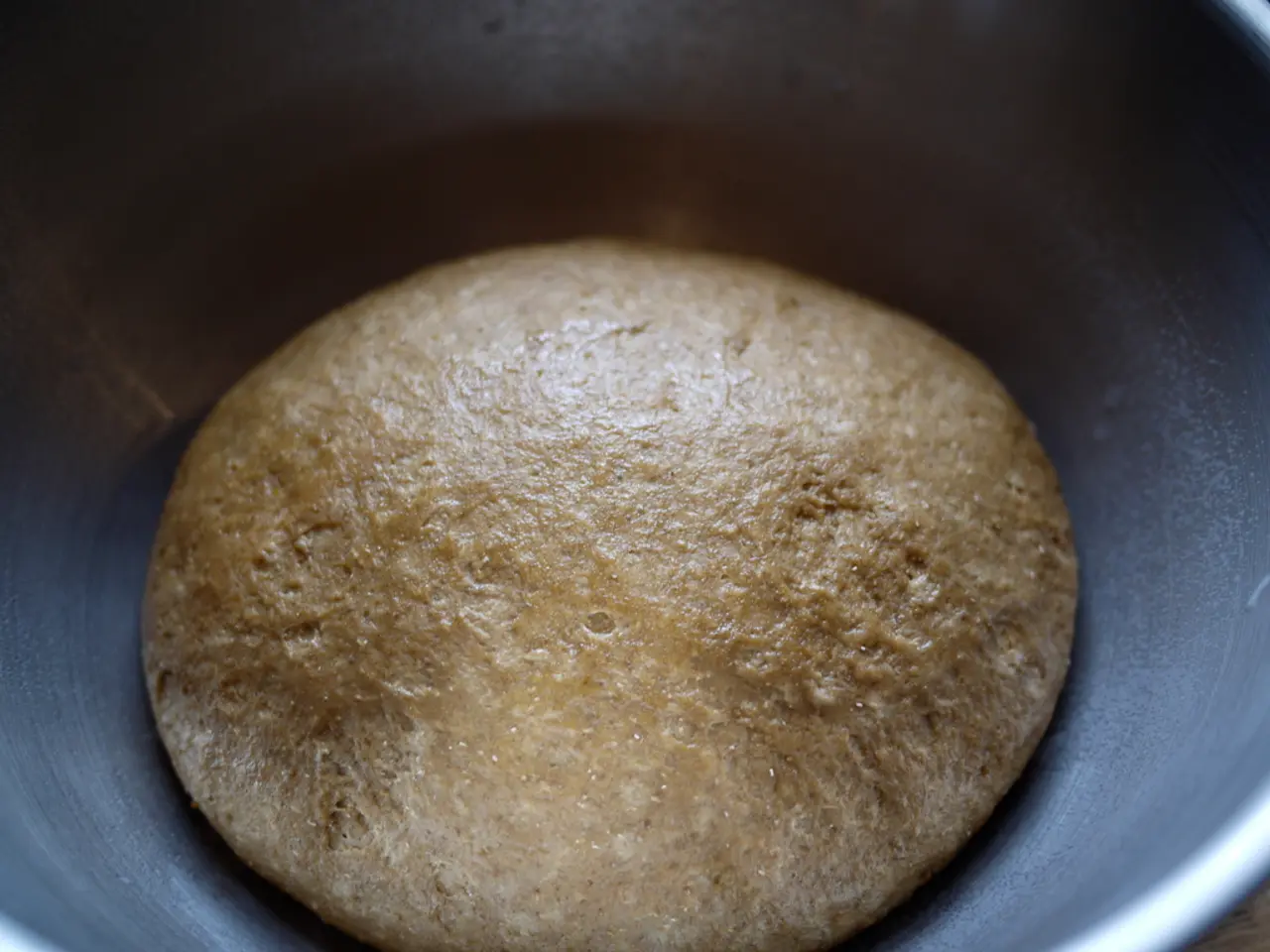Comprehensive instructions on the most efficient kinds of loaf bread
Bread, a staple food consumed by millions worldwide, comes in various forms, each offering unique nutritional benefits. Here's a closer look at the advantages of whole grain, sprouted, rye, sourdough, and gluten-free breads compared to white bread.
Whole Grain and Sprouted Breads
Made from whole grains, these bread types retain the bran, germ, and endosperm, providing more fiber, vitamins, and minerals than refined white bread. This higher fiber content contributes to better digestion and may support weight management [1][2].
Rye Bread
Typically whole grain, rye bread also contains more fiber and nutrients than white bread, helping with satiety and better blood sugar control [2].
Sourdough Bread
Produced through a fermentation process involving natural yeasts and bacteria, sourdough bread offers additional benefits. Fermentation lowers its glycemic index, improves nutrient bioavailability, and introduces beneficial bacteria that promote gut health [1][4][5]. Some people, including those with irritable bowel syndrome, may find sourdough easier to digest because it is lower in fermentable carbohydrates called FODMAPs [1]. Additionally, sourdough's fermentation partially breaks down gluten, potentially making it more tolerable to those sensitive to gluten, though it does contain gluten unless made from gluten-free grains [4].
Gluten-Free Breads
Gluten-free breads (when properly made from grains like brown rice) avoid gluten entirely and are suitable for people with celiac disease or gluten sensitivity. While gluten-free bread may vary in nutrition, sourdough can be made from gluten-free flour bases to combine the benefits of fermentation with gluten-free status [4]. However, gluten-free breads often have less fiber and nutrients unless they are enriched or made from whole grains.
White Bread
Made from refined white flour, white bread lacks the nutritional punch of its whole grain counterparts. With lower fiber, fewer vitamins and minerals, and a higher glycemic index that causes faster blood sugar spikes, white bread is not the healthiest choice for daily consumption [1][5].
In summary, choosing whole grain, sprouted, rye, or sourdough breads over white bread provides greater fiber, improved mineral and vitamin retention, better blood sugar control, and gut health benefits. Gluten-free options cater to those with gluten intolerance but vary nutritionally. Eating white bread occasionally is not harmful, but for overall nutrition, the other bread types are preferable [1][2][4][5].
Remember, whole grain bread is an excellent source of dietary fiber. Choose bread with high fiber content as fiber aids in satiety, digestion, and helps regulate blood sugar levels. Sourdough bread contains beneficial bacteria that support a healthy gut microbiome. The fermentation process in sourdough bread breaks down gluten and other complex carbohydrates, making it easier to digest for people with mild gluten sensitivity.
- Whole grain and sprouted breads, rich in fiber, vitamins, and minerals, can support weight management and promote better digestion.
- Rye bread, being whole grain, offers more nutrients than white bread, aiding in satiety and controlling blood sugar levels.
- Sourdough bread, fermented using natural yeasts and bacteria, has a lower glycemic index, better nutrient bioavailability, and promotes gut health.
- Sourdough bread may be easier to digest for those with irritable bowel syndrome due to its lower FODMAPs content.
- Gluten-free bread, when properly made from whole grains like brown rice, can cater to those with celiac disease or gluten sensitivity.
- However, gluten-free bread typically has less fiber and nutrients unless enriched or made from whole grains.
- White bread, made from refined white flour, lacks the nutritional benefits of whole grain breads and causes faster blood sugar spikes.
- Adopting a lifestyle that incorporates healthy-cooking techniques, focusing on global cuisines and nutrition, can help manage weight, maintain healthy skin, and improve overall health and wellness through fitness, therapies, and medicare options, as well as through a healthy diet and skin care regimen.




